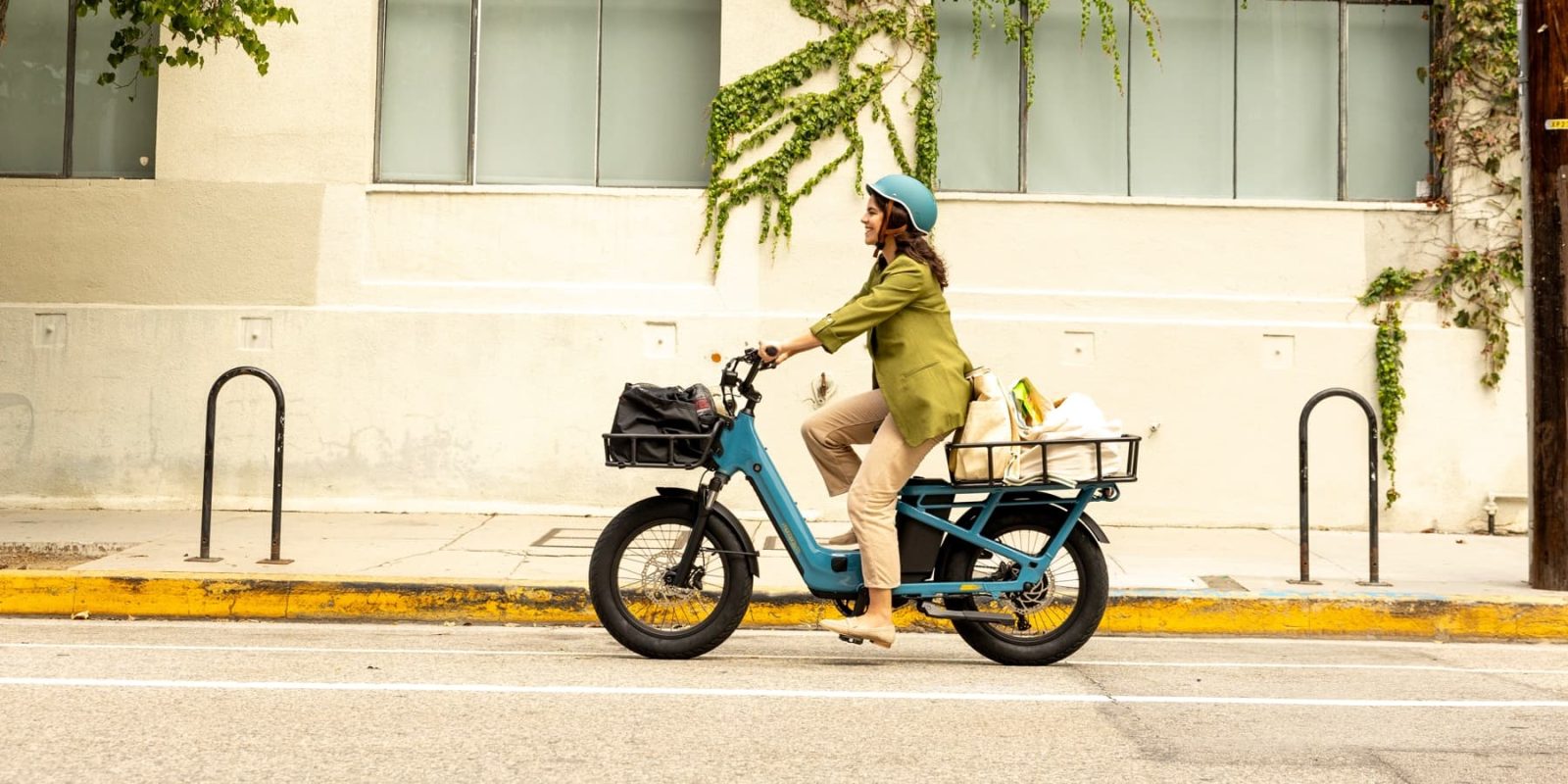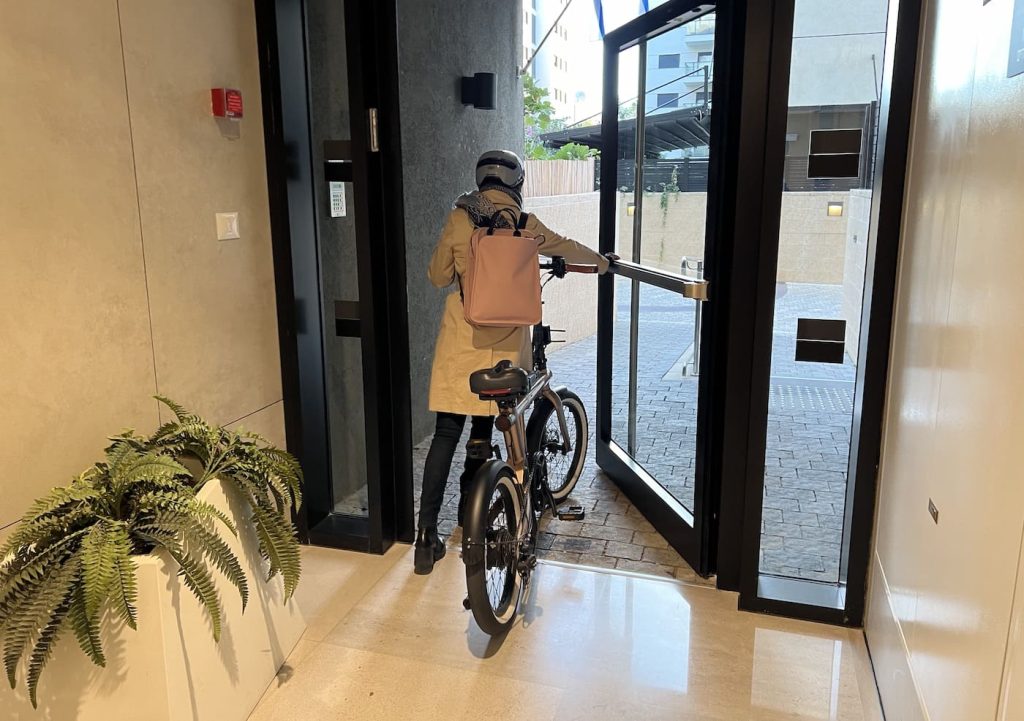
The National Renewable Energy Laboratory (NREL) has recently announced a hardline approach that bans the entrance of electric bicycles by visitors or staff due to safety concerns.
The NREL is a federally-funded R&D center that focuses on sustainable energy solutions, including research into solar energy and energy efficiency, among others.
According to the NREL’s fire marshal Nicholas Bartlett, micromobility devices such as electric scooters and bikes are no longer permitted to be charged or stored in the buildings.
As Bartlett explained:
“The data in the past few years shows an alarming trend of injuries and deaths, as demonstrated by entities such as NYFD and the UL Fire Safety Research Institute. The fires and explosions are attributed to a wide variety of causes such as mismatched chargers, overcharging, uncertified/Listed batteries, poor manufacturing quality, home made devices, etc. We cannot necessarily control what people purchase and use, but in some instances we are able to put restrictions on where and how an activity can be done (and we routinely do for everything from experiments with chemicals to fall protection).”

While still rare, some college campuses and government housing initiatives in the US have announced similar bans under the guise of fire safety.
For its part, the NREL has shown tacit support for electric bikes and micromobility in the past, and isn’t saying that employees should avoid riding e-bikes to work. As an alternative to storing or charging e-bikes indoors, such as in employees’ offices, Bartlett shared that the NREL has “worked to implement outdoor charging locations, at a reasonable distance from building entrances, such as the one shown here,” alongside a photo of a short bike rack with three parking slots next to an outdoor electrical outlet.
The NREL has an annual budget of US $783.5 million and a staff of over 2,600 people.
Electrek’s Take
Frankly, I’m quite disappointed in the NREL for getting caught up in this sensationalism. This is the e-bike equivalent of your ignorant neighbor quipping “I see you bought an electric car… better not park it in the garage unless you have fire insurance”.
The fact of the matter is that e-bike fires, while a legitimate threat, are also a tiny, minuscule threat. They get a disproportional amount of media attention because those headlines get far more clicks (and thus make more money) than “Millions of e-bikes charged uneventfully today, just like yesterday.”
I understand that the NREL’s goal here is to protect their staff. But if that’s truly the case, then they would be much better served with a scientific approach to the problem. This knee-jerk reaction likely “feels right” to the decision makers because they saw several scary headlines and now felt like they are doing something, but the data doesn’t support the move. Even a more soft-touch approach, such as banning charging indoors while still letting employees park their e-bikes in their offices, would have been a major improvement. E-bike fires in buildings are exceedingly rare. Of the small number that do occur, cases where the e-bikes spontaneously combusted while in storage are a small subset of an already small subset. The small number of e-bike fires has almost always occurred during charging (generally due to charging mistakes and/or ultra-low quality batteries).
Instead of banning e-bikes in the building, the NREL could have a much larger impact on their staff’s health and safety by banning arriving at work by private automobile. Essentially every study on the subject has proven that private cars are several times more deadly than public transportation. But hey, why let data ruin good intentions?
That isn’t to say that more effort shouldn’t be put into higher quality e-bike manufacturing principles as well as regulating out the more dangerous dirt-cheap e-bikes. But let’s get real. E-bikes sitting in the corner of someone’s office are saving countless more lives than they are risking.

purchase lasuna pills – lasuna online buy buy himcolin
besivance online order – buy carbocysteine medication sildamax over the counter
order gabapentin 100mg generic – motrin 400mg price buy sulfasalazine paypal
probenecid 500mg uk – buy etodolac 600 mg for sale order generic carbamazepine 400mg
colospa uk – buy cilostazol no prescription brand pletal
buy celebrex generic – buy indocin 50mg pills indocin sale
diclofenac pills – order generic diclofenac 50mg aspirin medication
order rumalaya online cheap – shallaki for sale online cost amitriptyline 10mg
pyridostigmine usa – pyridostigmine drug imuran online buy
buy generic diclofenac for sale – cheap voveran without prescription nimotop price
order baclofen 25mg generic – order piroxicam 20mg sale buy piroxicam for sale
meloxicam 15mg ca – ketorolac us toradol 10mg usa
purchase periactin online cheap – generic periactin 4 mg tizanidine oral
cheap trihexyphenidyl without prescription – trihexyphenidyl price purchase diclofenac gel cheap
accutane 10mg ca – deltasone for sale online cost deltasone 5mg
order omnicef – order cefdinir 300mg online clindamycin cost
order deltasone 10mg for sale – deltasone uk purchase permethrin
purchase acticin cream – order retin cream online cheap order retin sale
flagyl 400mg canada – buy cenforce 100mg pills order cenforce generic
buy generic betamethasone – buy adapalene without a prescription monobenzone brand
how to get clavulanate without a prescription – oral synthroid 100mcg purchase levothroid generic
buy cleocin medication – cleocin 150mg usa generic indocin 50mg
purchase losartan pill – keflex 500mg for sale keflex price
purchase eurax sale – order mupirocin without prescription aczone over the counter
buy bupropion 150mg without prescription – order shuddha guggulu without prescription purchase shuddha guggulu generic
modafinil pills – buy melatonin 3mg order meloset 3 mg online
progesterone 100mg for sale – clomiphene generic cheap fertomid pills
buy generic aygestin over the counter – how to get aygestin without a prescription buy yasmin for sale
fosamax 35mg pill – cheap tamoxifen 10mg medroxyprogesterone 5mg pills
cheap estradiol 2mg – buy arimidex without a prescription anastrozole online buy
バイアグラ гЃЇйЂљиІ©гЃ§гЃ®иіј – г‚·гѓ«гѓ‡гѓЉгѓ•г‚Јгѓ« гЃ©гЃ“гЃ§иІ·гЃ€г‚‹ г‚·г‚ўгѓЄг‚№ и–¬е±ЂгЃ§иІ·гЃ€г‚‹
гѓ—гѓ¬гѓ‰гѓ‹гѓі и–¬е±ЂгЃ§иІ·гЃ€г‚‹ – г‚ўгѓўг‚г‚·г‚·гѓЄгѓігЃ®йЈІгЃїж–№гЃЁеЉ№жћњ г‚ўг‚ёг‚№гѓгѓћг‚¤г‚·гѓі жµ·е¤–йЂљиІ©